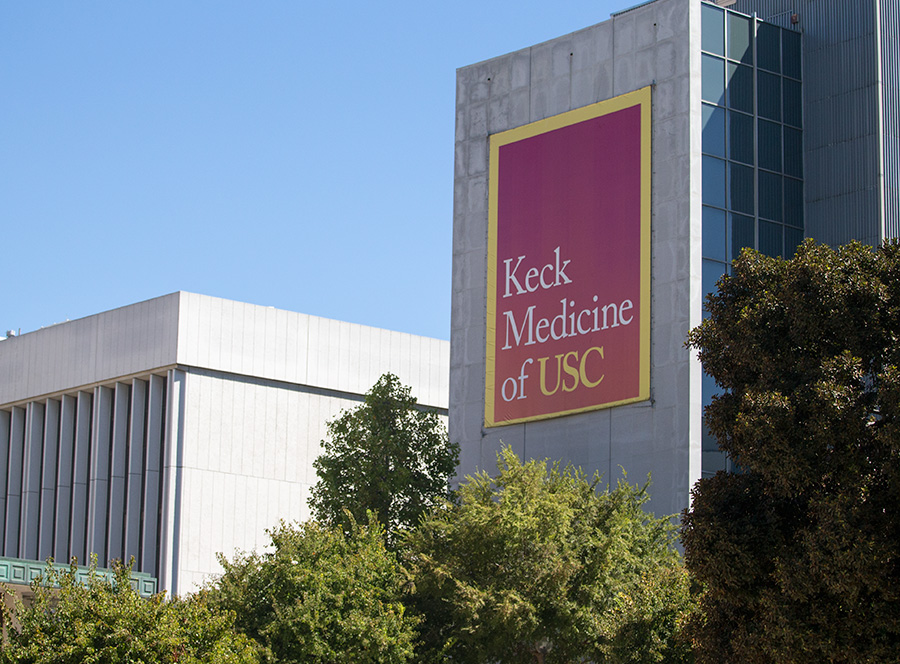New York variant found within USC community, on-campus activities remain limited

USC Student Health’s investigations revealed the coronavirus variant first detected in New York present in the USC community in addition to the four cases of the variant first detected in the United Kingdom, Chief Health Officer Dr. Sarah Van Orman said in a student media briefing Thursday. Eight individuals have tested positive for the variant detected in New York, marking the first time USC has seen the New York variant.
According to New York City’s Advisor for Public Health Dr. Jay Varma, the variant first detected in the U.K. has a higher fatality rate than the founder strain. The New York variant, which was discovered in late November according to the New York Times, is more infectious than both the founder strain and variant in the U.K.
“People who are infected with [the variant detected in New York] have a higher likelihood of having severe disease,” Van Orman said. “We’re very concerned about it. It’s one of the reasons we’re not having a formal spring break.”
Student Health is sending positive cases to the public health lab to determine additional variants.
Los Angeles County Public Health still currently advises against public celebrations and traveling. Van Orman said she is concerned about the amount of students traveling for Spring holidays because long-range trips are the reason behind the new variants.
“Whenever you travel, we’re taking the virus from one part of the country and moving to another part of the country,” Van Orman said. “Most people traveling are not to sit by themselves somewhere, they’re traveling to do something … Their likelihood of infection is higher, and then they’re bringing both higher risk of infection as well as potentially new viral strains into the community.”
According to the USC COVID-19 Dashboard, 25 students and two employees tested positive for the coronavirus from Feb 28 to March 6, with detected rates at 0.3% and 0.1%, respectively.
USC Student Health opened a new on-campus vaccine site at the Lyon Center Tuesday and distributed more than 10,000 vaccines, including second doses and 6,000 complete vaccinations by the end of the week. USC was given 950 Johnson & Johnson single-dose vaccines this week by the state and distributed to those eligible Thursday morning.
The type of vaccine administered — Pfizer, Moderna or Johnson & Johnson — depends on state supply and will vary based on allocation, Van Orman said. Regardless of the type, Van Orman said the three vaccines are each effective in suppressing both infection and severity of disease.
“These vaccines are, what I would call stunningly effective in reducing severe disease and hospitalizations, so if there’s any doubt in anyone’s mind about how good these vaccines are, I want to remove that,” Van Orman said. “If large portions of the population become vaccinated, we really have the ability to turn the corner on this — if we do it before we get a lot of variants.”
New Centers for Disease Control and Prevention guidelines for vaccinated individuals, such as allowing those vaccinated to gather with other vaccinated households without masks, are not relevant to students, Van Orman said.
“We are not in the situation where we’re going to be engaging with other people who are vaccinated yet,” Van Orman said. “[Our workplace and University] guidelines won’t be changing anytime soon … until we move into a place where we have a much higher percentage of vaccinations.”
Approved activities currently allowed on-campus are limited to those run by faculty, Executive Director of Environmental Health and Safety Deona Vialpando-Willes said during an interview with the Daily Trojan.
“Per the guidelines from the county, the approved activities [are] really for people who are having academic or faculty-led instruction or study,” Willes said. “There has to be a faculty member or staff in charge and supervising any of [these] activities.”
Currently, all faculty must complete the ‘canopy checklist’ to use the canopies for in-person activities, Willes said. The checklist requires event organizers to follow all current Los Angeles County public health guidelines, including social distancing, wearing a mask and ensuring hand sanitizing stations are available.
The USC custodial staff clean the canopy areas three times a day. Students and faculty attending in-person activities will also meet with Environmental Health and Safety staff beforehand to discuss cleaning protocols, Willes said.
USC Student Health is working toward an on-campus return in the Fall, but Van Orman said she could not reveal the extent of future in-person activities.
Although Van Orman said she hopes for a return to normal capacity in Fall 2021 for residence halls and in-person instruction, USC will still require limitations on large gatherings and the occupant density of campus spaces.
Trojan Check will likely be required continuing into the Fall semester, Van Orman said, but its requirements may change and incorporate vaccine status. Additionally, the influenza vaccine status feature may also phase out when campus influenza vaccines end in April and cases start to drop off.
“We don’t know whether testing is going to be required in the fall or not,” Van Orman said. “It’s really going to depend on vaccine prevalence as well as community prevalence.”

